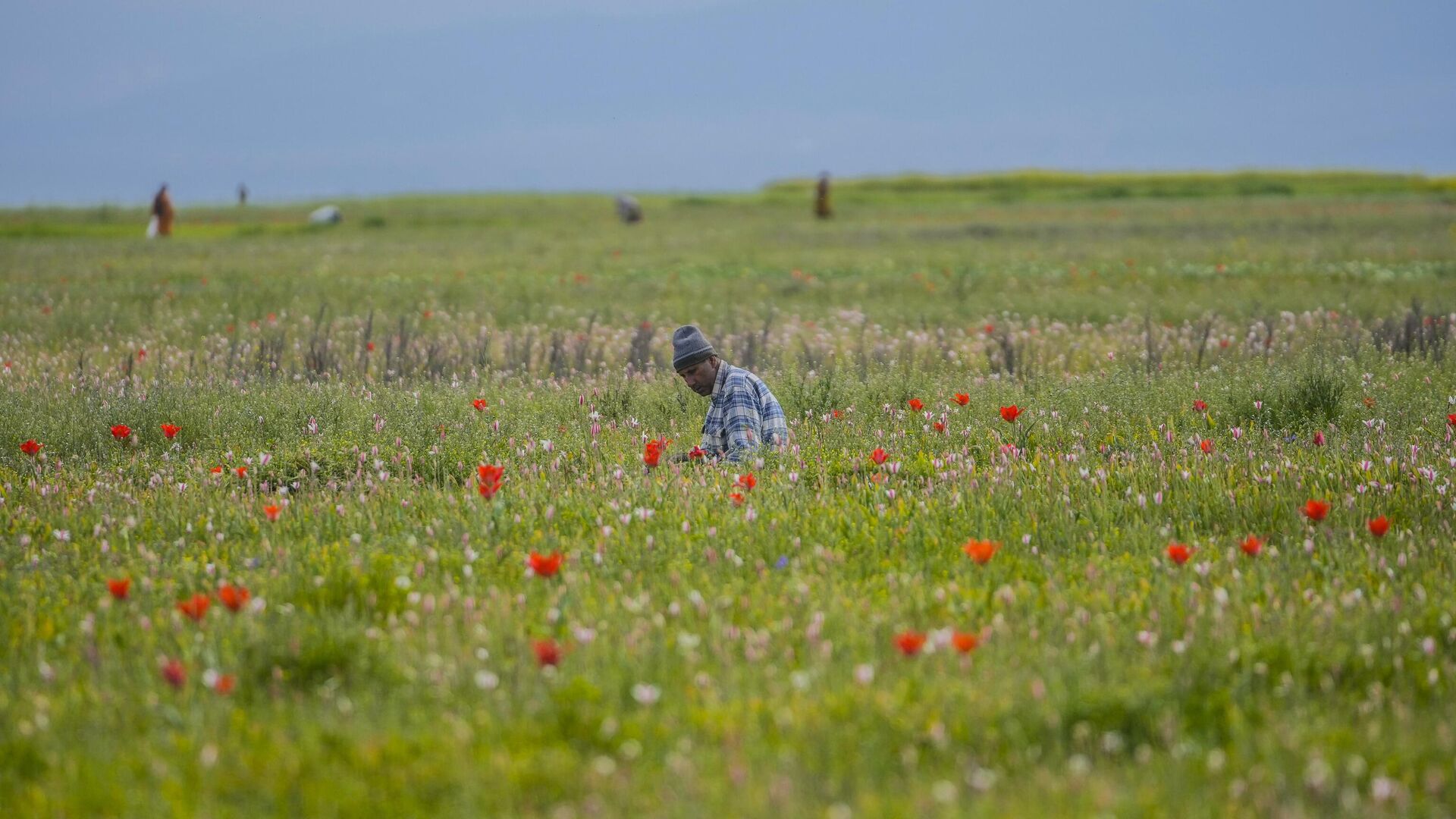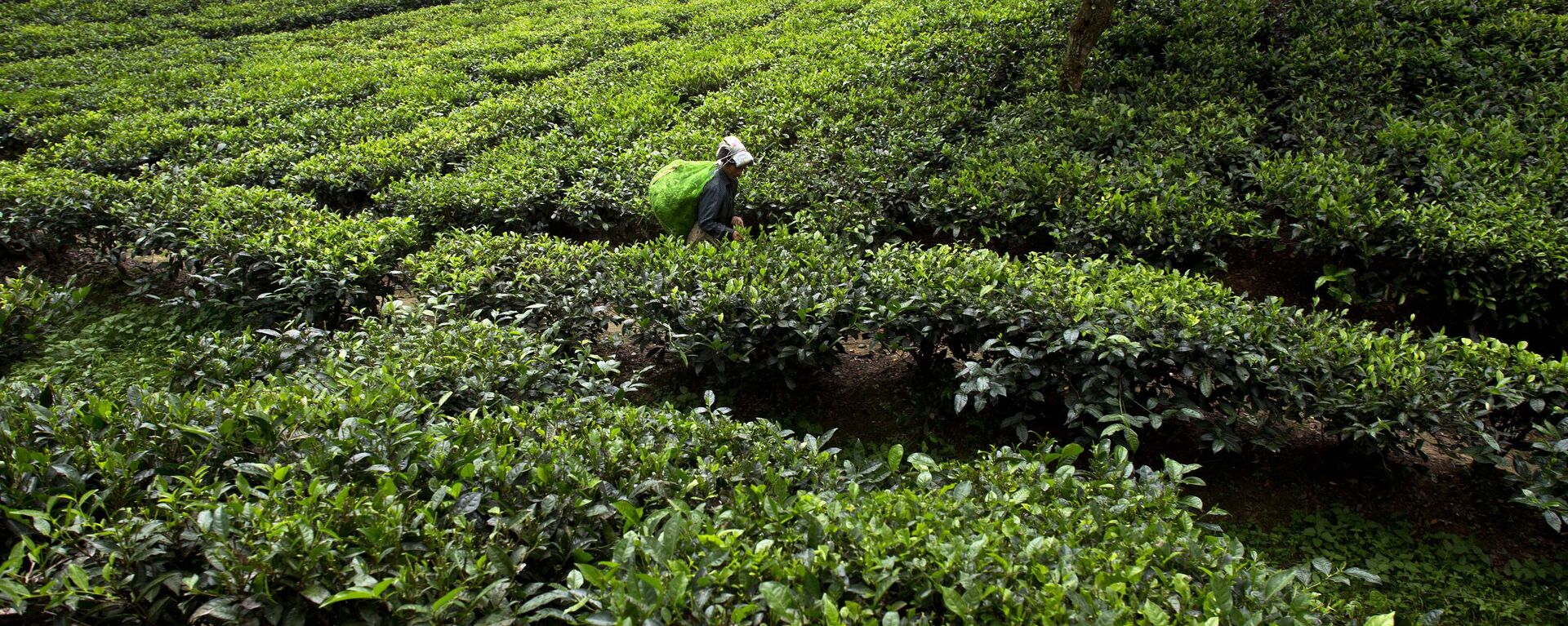https://sputniknews.in/20230616/global-south-hardest-hit-by-supply-chain-disruptions-in-agriculture---pm-modi--2514288.html
Global South Hardest Hit by Supply Chain Disruptions in Agriculture - PM Modi
Global South Hardest Hit by Supply Chain Disruptions in Agriculture - PM Modi
Sputnik India
Prime Minister Narendra Modi has said that “supply chain disruptions” caused by the Covid pandemic and geopolitical tensions in the agricultural sector were being "felt most" by the low and middle-income nations.
2023-06-16T14:52+0530
2023-06-16T14:52+0530
2023-06-16T14:52+0530
india g-20 presidency
g-20
narendra modi
india
millets
fertilizers
wheat export
wheat export ban
global south
global supply chains
https://cdn1.img.sputniknews.in/img/07e7/06/10/2520484_0:160:3072:1888_1920x0_80_0_0_080025d2e978617b6c7bf4d0a411beac.jpg
Indian Prime Minister Narendra Modi has said that supply chain disruptions in the agricultural sector caused by the COVID-19 pandemic and geopolitical tensions were being "felt most" by the low and middle-income nations of the Global South.While there has been no direct sanctions by the West against food and fertilizers, restrictions in transportation and financial sectors have hit global supplies.Modi said that farmers in India were increasingly taking up “natural farming” (involving the use of organic fertilizers rather than synthetic ones and pesticides) and the use of technology in agriculture in order to boost productivity and overcome these global disruptions.Over 54% of the Indian population was directly engaged in farming activities, according to the last census taken in 2011.He said that the Indian farmers were also making the use of ‘Soil Health Cards’ to optimize crop selection and nurture their crops.“I believe this fusion approach is the best way to address several issues in agriculture,” Modi said.India has also been promoting millets as means of fighting global hunger as part of its ongoing G20 presidency.India Calls For Protecting 'Marginal Farmers' of Developing NationsThe Indian Prime Minister urged G20 nations to undertake “collective action” to ensure global food security and build "inclusive, sustainable" food systems.He said that the focus should be on protecting “marginal farmers” in developing nations.He expressed satisfaction with the two outcomes which could emerge from the G20 Agricultural Ministers’ meeting—'Deccan High Level Principles on Food Security and Nutrition'' and the MAHARISHI initiative for millets and other grains.
https://sputniknews.in/20230425/india-can-become-enduring-supplier-of-food-products-to-russia-indian-business-delegation-head-1687359.html
india
global south
russia
Sputnik India
feedback.hindi@sputniknews.com
+74956456601
MIA „Rossiya Segodnya“
2023
Dhairya Maheshwari
https://cdn1.img.sputniknews.in/img/07e6/0c/13/138962_0:0:641:640_100x100_80_0_0_2cb44360dbcdf6d84bf4b299cd045917.jpg
Dhairya Maheshwari
https://cdn1.img.sputniknews.in/img/07e6/0c/13/138962_0:0:641:640_100x100_80_0_0_2cb44360dbcdf6d84bf4b299cd045917.jpg
News
en_IN
Sputnik India
feedback.hindi@sputniknews.com
+74956456601
MIA „Rossiya Segodnya“
Sputnik India
feedback.hindi@sputniknews.com
+74956456601
MIA „Rossiya Segodnya“
Dhairya Maheshwari
https://cdn1.img.sputniknews.in/img/07e6/0c/13/138962_0:0:641:640_100x100_80_0_0_2cb44360dbcdf6d84bf4b299cd045917.jpg
global south, global south countries, wheat export ban, wheat in russia, wheat production in china, g20 countries, g20 summit
global south, global south countries, wheat export ban, wheat in russia, wheat production in china, g20 countries, g20 summit
Global South Hardest Hit by Supply Chain Disruptions in Agriculture - PM Modi
Global wheat and fertilizer supplies have been disrupted due to the G7's sanctions against Russia, since Moscow has traditionally been among the biggest exporter of both commodities.
Indian Prime Minister Narendra Modi has said that supply chain disruptions in the agricultural sector caused by the COVID-19 pandemic and geopolitical tensions were being "felt most" by the low and middle-income nations of the Global South.
While there has been no direct sanctions by the West against food and fertilizers, restrictions in transportation and financial sectors have hit global supplies.
The Indian leader underlined that the agricultural sector was a source of livelihood for nearly 2.5 billion people globally. “In the Global South, agriculture accounts for almost 30% of GDP, and over 60% of jobs,” Modi said during his virtual address to the audience of the G20 Agricultural Ministers' Meeting in Hyderabad on Friday.
Modi said that farmers in India were increasingly taking up “natural farming” (involving the use of organic fertilizers rather than synthetic ones and pesticides) and the use of technology in agriculture in order to boost productivity and overcome these global disruptions.
Over 54% of the Indian population was directly engaged in farming activities, according to the last census taken in 2011.
He said that the Indian farmers were also making the use of ‘Soil Health Cards’ to optimize crop selection and nurture their crops.
“I believe this fusion approach is the best way to address several issues in agriculture,” Modi said.
India has also been promoting
millets as means of
fighting global hunger as part of its ongoing G20 presidency.
“These superfoods are not only healthy to consume, but they also help raise the incomes of our farmers by using less water, needing less fertilizer, and being more pest-resistant,” Modi said, noting that India was celebrating 2023 as the ‘International Year of Millets’.
India Calls For Protecting 'Marginal Farmers' of Developing Nations
The Indian Prime Minister urged G20 nations to undertake “collective action” to ensure global food security and build "inclusive, sustainable" food systems.
He said that the focus should be on protecting “marginal farmers” in developing nations.
“We must also make solutions affordable for small and marginal farmers in the Global South. There is also an urgent need to reduce agricultural and food waste, and instead, invest in creating wealth from waste,” the Indian leader stated.
He expressed satisfaction with the two outcomes which could emerge from the G20 Agricultural Ministers’ meeting—'Deccan High Level Principles on Food Security and Nutrition'' and the MAHARISHI initiative for millets and other grains.



